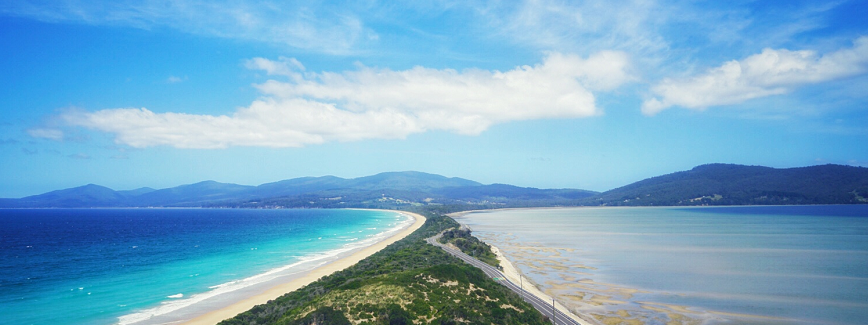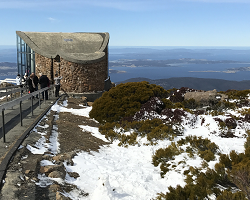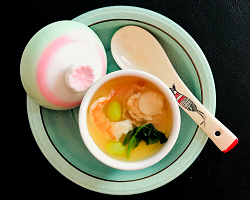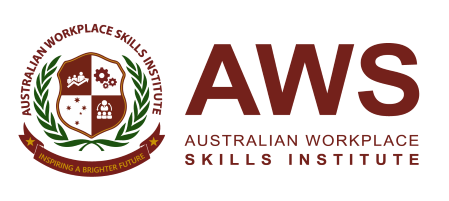Living in Sydney
Up-to-date and more detailed information about overseas students studying and living in Australia is available at the following website http://www.studyinaustralia.gov.au. This website is established and maintained by the Australian government
Australia is a land of contrasts: sweeping golden beaches, coral reefs rich with marine life, tropical rainforests, mountain ranges, vast grazing lands and sparse deserts.
One of the oldest continents, Australia is the only country to occupy an entire continent.
Surrounded by the Indian and Pacific Oceans, Australia has many animals and plants, which are unique on the planet. The surface geology is typically old and flat with a major mountain range stretching down the eastern coast and another mountain range in the north west of the continent.

Sydney
Sydney is the largest city in Australia with a population of approximately four million people. Sydney is the capital city of New South Wales. It is a multicultural city with people from different ethnic backgrounds. Australian Workplace Skills Institute is located in the heart of city. It’s just a short walk from the train station or bus stop.
The Study in Sydney website is a useful source of information. The web site address is http://www.sydneyaustralia.com/en/study-in-sydney
Climate
Sydney enjoys a temperate climate with four distinct seasons in the year - spring, summer, winter and autumn. Below is a guide to the average daily temperatures.
Spring: September - November 12-22 degrees
Summer: December to February 28-32 degrees
Autumn: March to May 12 - 20 degrees
Winter: June to August 10 - 15 degrees
Sports and other outdoor activities are possible at all times of the year.



Study in Sydney
There are more than 50,000 overseas students studying in Australia and each year approximately 15,000 students from the Asia Pacific region arrive in Australia to continue their education. They have chosen Australia for several reasons:
Australia has a high quality education system, the equal of any country in the world
Australia offers traditional education in reputable schools, institutes, colleges and universities
Awards from Australian institutions of higher education are recognized internationally
Australian schools, institutes, colleges and universities have established networks of welfare and support to help overseas students
The Australian education system includes informality and accessibility of academic staff, the availability of computers, small group tutorials and close supervision
Living costs and tuition costs compare well with other countries and most overseas students are permitted to work part-time.
Australia is a safe, stable country with a pleasant climate.
Food
Australia has a fantastic variety of food. Our top quality meat, fish, fruits and vegetables are exported to markets all around the globe. There is a large range of fruit and vegetables available at Australian produce markets. You should have no difficulty in finding the foods that you are used to at home.
You can sample almost every type of cuisine available throughout the world in our many restaurants. There are elegant restaurants or typical Aussie pubs. Ethnic restaurants offer cuisines from all around the world. Good food at reasonable prices can be found at bistros or cafes. And for those who like takeaway, most of the major global fast food chains are well represented. The adventurous can try some of our ‘bush tucker’.



Transport
With one of the highest standards of living in the world, Australia offers modern transport systems. Australia has an extensive public transport system that includes trains, buses, tramways, ferries, two major national airlines and a number of regional airlines. Metropolitan areas are divided into zones and your ticket type and cost depends on which zone you are going to travel in and for how long. Tickets can be bought at train stations, on buses and trams and at newsagencies.
Tourist students may drive in Australia on a valid overseas drivers licence but if the document is not in the English language the visitor must carry a translation with the permit. An international driving licence is not sufficient by itself.
Metered taxicabs operate in all major cities and towns. You will find taxi ranks at transport terminals, main hotels or shopping centres or you can hail taxis in the street. A light and sign on the roof indicates if a cab is vacant. There is a minimum charge on hiring and then a charge per kilometre travelled. Taxi drivers do not have to be tipped.
Sydney has a very well developed Opal Card system that you will just need an Opal Card to tap on or off for each time you travel. For more information, please visit: https://transportnsw.info/tickets-opal/opal#/

Clean, safe, cosmopolitan
Students from all over the world come to Australia to take advantage of our world-class education and enjoy our friendly hospitality and cultural diversity. Australia has low crime rates and strict gun control laws providing a safe environment in which to learn and travel. With one of the highest standards of living in the world, Australia offers modern transport systems, convenient telecommunications, cosmopolitan shopping complexes and excellent health services.
Visitors from many parts of the world are attracted by Australia’s spectacular natural environment and the distinctive personality and friendliness of the Australian people. Australia is rich in the arts and is keen to preserve and display its diverse cultural heritage.
Australians are also environmentally conscious and keen to preserve the country's natural beauty and scenery. Our Clean Up Australia campaign is being adopted worldwide.
Health care
Australia has a very good health care system. All Australians pay a Medicare levy (additional tax) to fund the public health system and ensure everyone gets access to public system doctors, hospitals and other health care services. People who pay extra into a private health insurance fund receive certain privileges when they use private health care services. International students studying in Australia are required to have Overseas Student Health Cover (OSHC) for the duration of their student visa.
Entertainment
Campuses offer spacious surroundings suitable for social, sporting and other outdoor activities. They are also centrally located for students to experience the sophistication of our cities and excitement of our entertainment facilities. There are plenty of opportunities for international students to have an enjoyable time with friends.
Australia welcomes overseas students
Overseas students are welcomed in Australia because they:
Contribute to the development of people and institutions both in their home country and in Australia.
Contribute to the Australia's research capability
Develop cultural, educational and economic links between Australians and people of other nations.
Australia has a long history of involvement in international education development, staff and student exchange programs and scholarships.

Study Methods
In Australia, much emphasis is placed upon private (individual) study along the lines of assignments, on research and learning to analyse data and present arguments about subject matter, and on being willing to defend one's argument. All these involve heavy use of libraries, intensive note taking in lectures, and active participation in the learning process (as opposed to passive listening and rote learning).
To be a successful student in Australia, you will need to adapt to these methods of learning, but most education institutions in Australia are very willing to help as they offer counselling services and assistance to develop effective study skills. Many lecturers in Australia have vast experience teaching overseas students, they understand the difficulties in getting used to different study methods and they will be patient in helping you to develop new skills.
